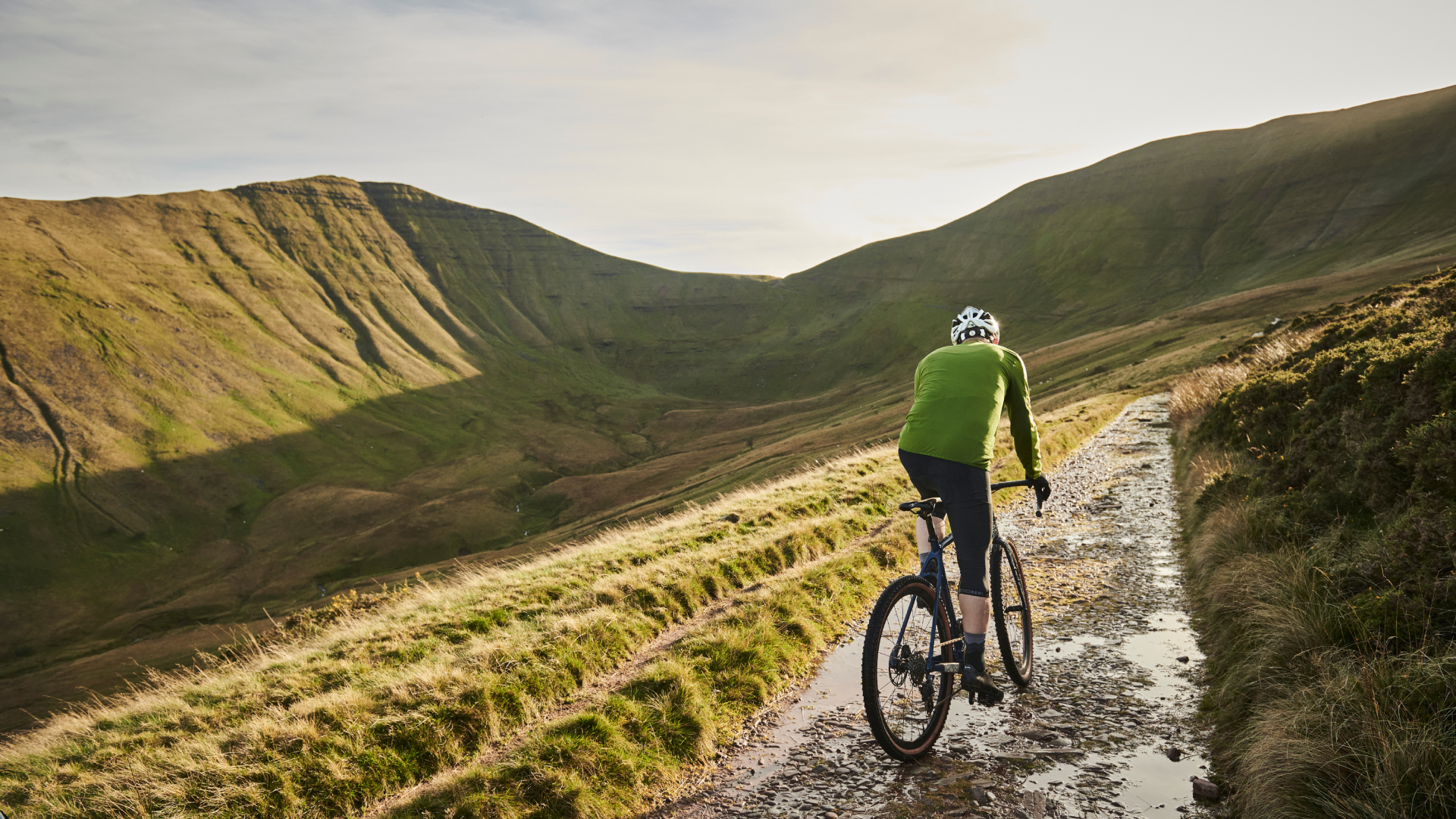
Off-roading, once the preserve of gnarly mountain bikers, is now embraced by many, if not most, road riders – and not just during the cyclo-cross season. “The likes of Matthieu van der Poel and Wout van Aert have drawn road riders to mud and gravel tracks,” says Luc Soenen, directeur sportif with the Luxembourg-based Hess road cycling team. While a period of lower-intensity riding remains essential after the arduous road racing season, coaches like Soenen advocate cross-country riding as a way to freshen up and acquire diverse skills. “It motivates road cyclists to explore new horizons and become more versatile athletes.” But that’s not all you’ll glean from gravel and cyclo-cross racing, or just heading out on your local trails…
Improved resilience, whole-body strength, and improved bike-handling are just some of the benefits road riders can gain from a winter on the soft stuff. So here are 12 nailed-on reasons to make regular excursions off-road from now until the spring.
1. Take the proven path to progress
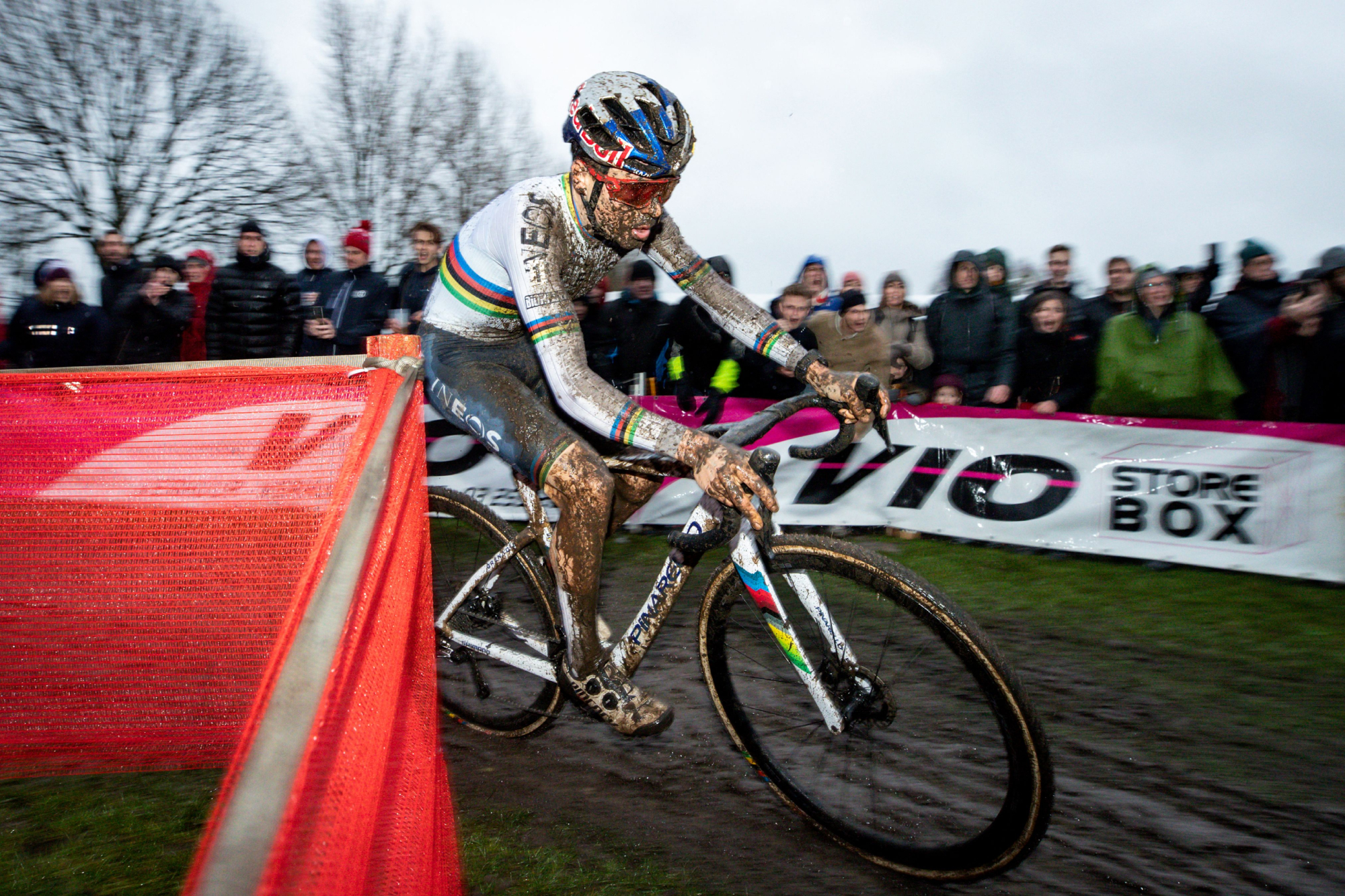
“The sooner you start combining your road riding with off-road, the faster you’ll reap the all-round rewards,” insists Matt Ellis, Great Britain Cycling Team cyclo-cross coordinator. Ellis is tasked with getting GB cyclo-cross teams to the World Championships while also developing young GB riders across road, track and off-road disciplines.
“On their Olympic pathways, young GB riders will transition from road to cyclo-cross in the off-season as part of their race development and to nurture some physical characteristics they want from it. They’re getting high-level racing with top-end intensity over the autumn and winter, which you just can’t simulate in training.”
2. Fast-track your technical skills
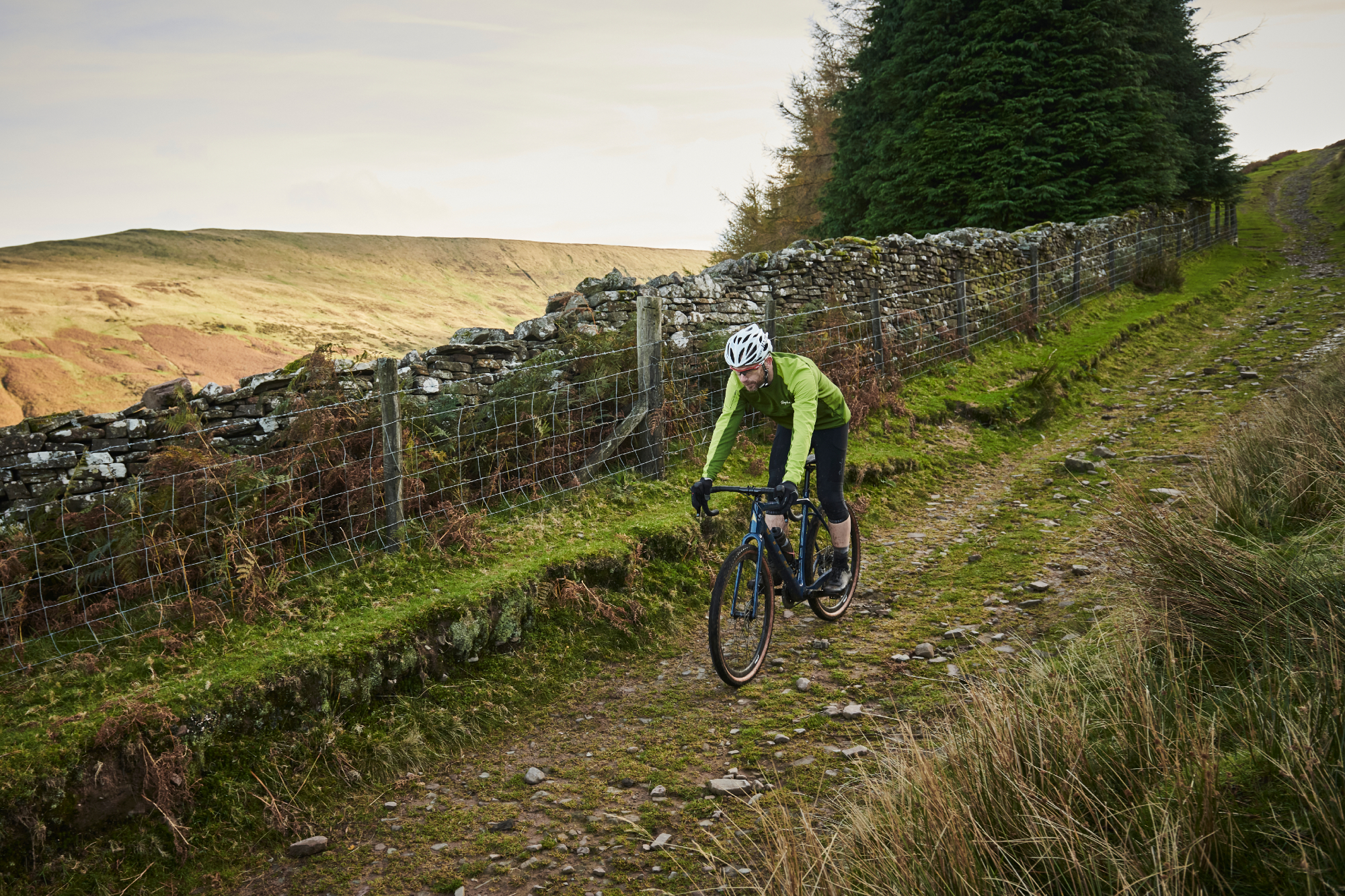
“Over recent years, we have seen how technical skills have become really important in road cycling,” explains Hess DS Luc Soenen. “Managing a descent, passing through a bunch, or riding cobbled sections are all road cycling skills that riding off-road tracks and trails helps to improve.”
Liv Wenzel, 19, one of Soenen’s young road racing charges at Hess, also rides cyclo-cross for Sebmotobikes, and agrees that riding gravel and trails offers a range of benefits when it’s time to get back on the road. “For me, the key bike handling benefit road riders can get from CX is riding corners fast and safely at the same time. It also teaches you to control your bike better and to be able to move up in the bunch more easily or avoid crashes. In general, it gives the rider a safer and more controlled feeling on the bike.”
3. Make rough roads seem easy
“When you come to cyclo-cross, you’re entering a pretty chaotic environment,” explains Matt Ellis. “The races are really busy, and you’ve got to work out your course practice time and learn a course in often hostile conditions and bad weather. It’s a brilliant way for riders to become more self-sufficient in their organisation and to quickly learn about terrain, effort, and big-event planning.”
“While a road rider might come to, say, Paris-Roubaix and think this is pretty chaotic, a rider who’s done cyclo-cross will see it as almost tame by comparison. CX races are short, but the days are full-on, with riders subconsciously learning a whole lot about racing, management, and ultimately themselves.”
4. Learn balance and control
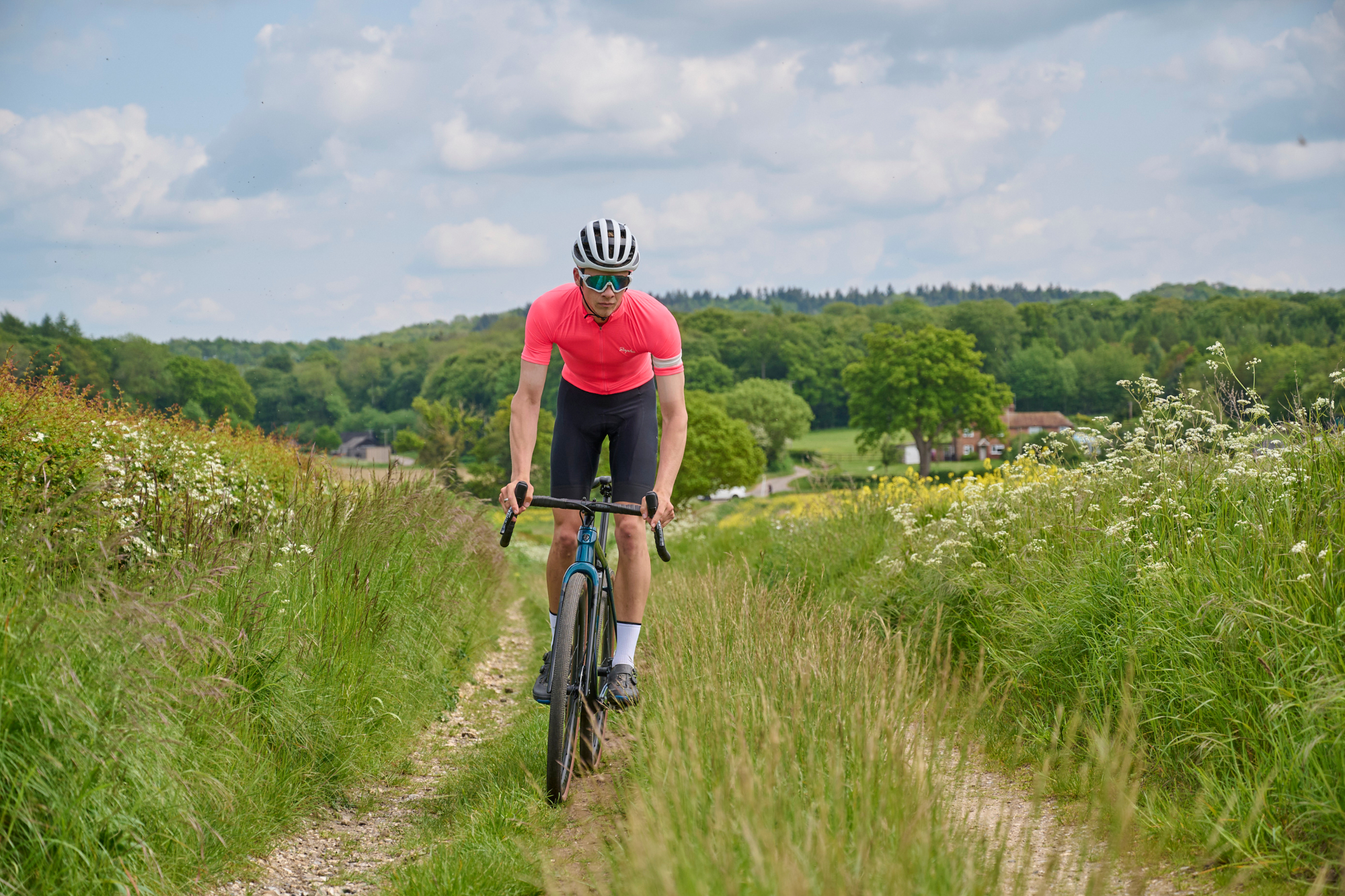
“When riding off-road, your speed is very much reduced due to the nature of the terrain and the courses,” explains Paul Cooper, coach and rider with Dundee Dynamos CC.
“You have mud, grass, rocks, and roots to contend with. These make the whole ride that much slower, which means you need to learn balance and control, using your upper body so much more to compensate for the bike movement. Being able to go around corners quickly and efficiently is where you can gain a lot of time on the road if you have confidence.”
5. Sharpen your reactions
“You’ll develop faster reaction times and also the ability to read what the bike is doing underneath you,” adds Keith Stocker, 47, a British Cycling-qualified coach who works with a range of cycling clubs through his coaching business. “Being able to be decisive in challenging situations while under physical and psychological strain can have huge benefits regardless of the type of bike you are riding.”
6. Master your skills transitions
In road events, where split-second decisions can be the difference between winning and losing, perfecting your transitions and efforts out of the saddle become crucial. “In cyclo-cross, you learn to dismount efficiently – and carry a heavy bike too – while the demands on your coordination, coupled with an ability to manoeuvre and line yourself up, mean that you master speedy, efficient transitions,” explains Matt Ellis.
7. Get in touch with your tires
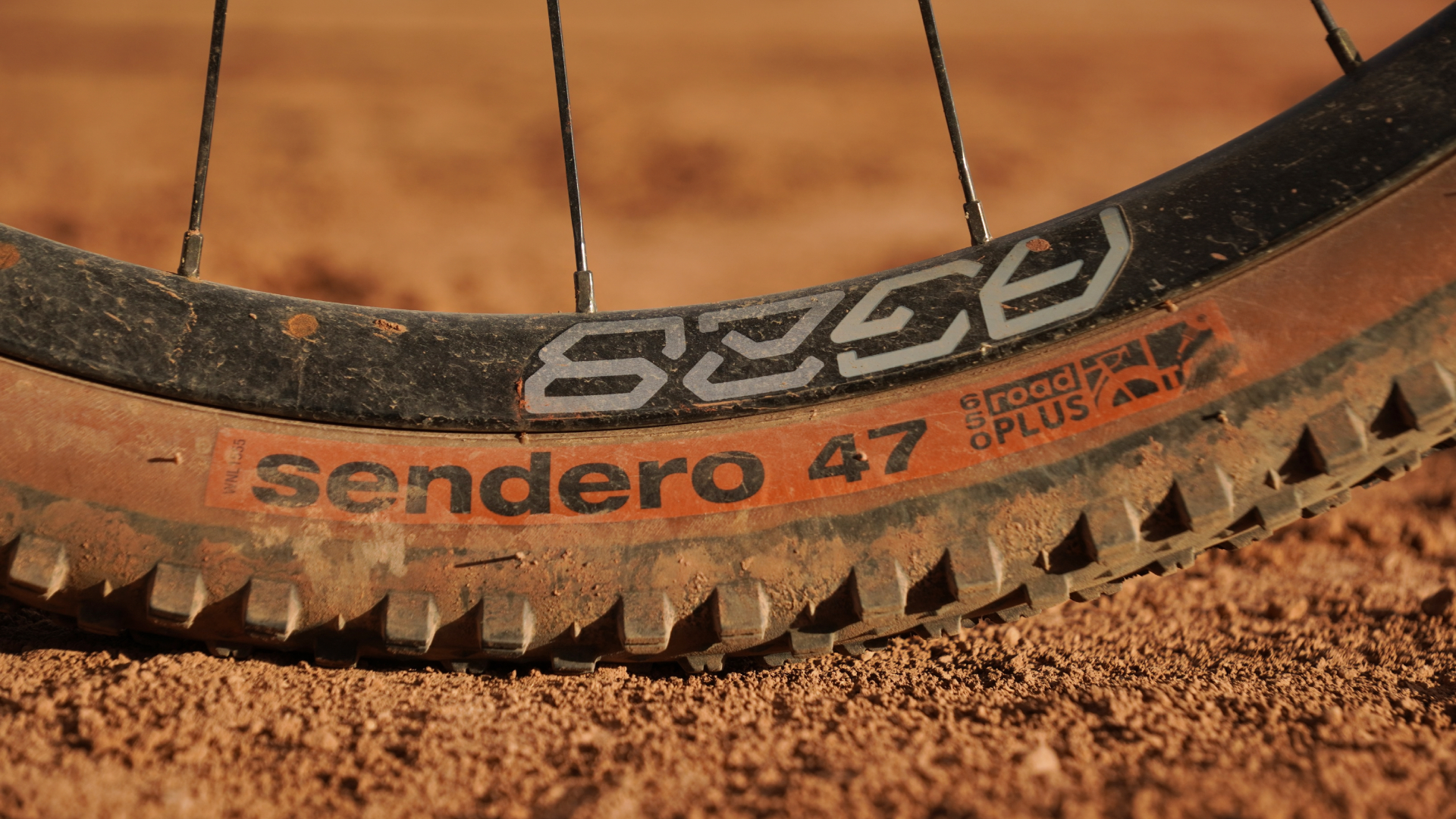
“In off-road riding, it’s all about your tire choice and gravel bike tire pressure,” says Ellis. At your local cyclo-cross events, you’ll see hardtail mountain bikes, gravel bikes, purpose-built CX rides, hybrids, and even singlespeed bikes – it’s a very inclusive environment, and that’s because it’s adaptability and set-up that matter more than the machinery itself. “On the road, riders tend not to think too much about matching tire pressure to road surface, but many smarter riders are thinking more about opting for wider tires and lower pressures. That way, they’re getting a better feel for the terrain. Gaining a feel for how tires interact with the surface is such a significant aspect of off-road, whereas road riders tend to overlook it or take it for granted.”
You can find our pick of the best gravel bike tires on the market to suit different terrain, conditions, frame clearances and budgets over here.
8. Develop instinctive resilience
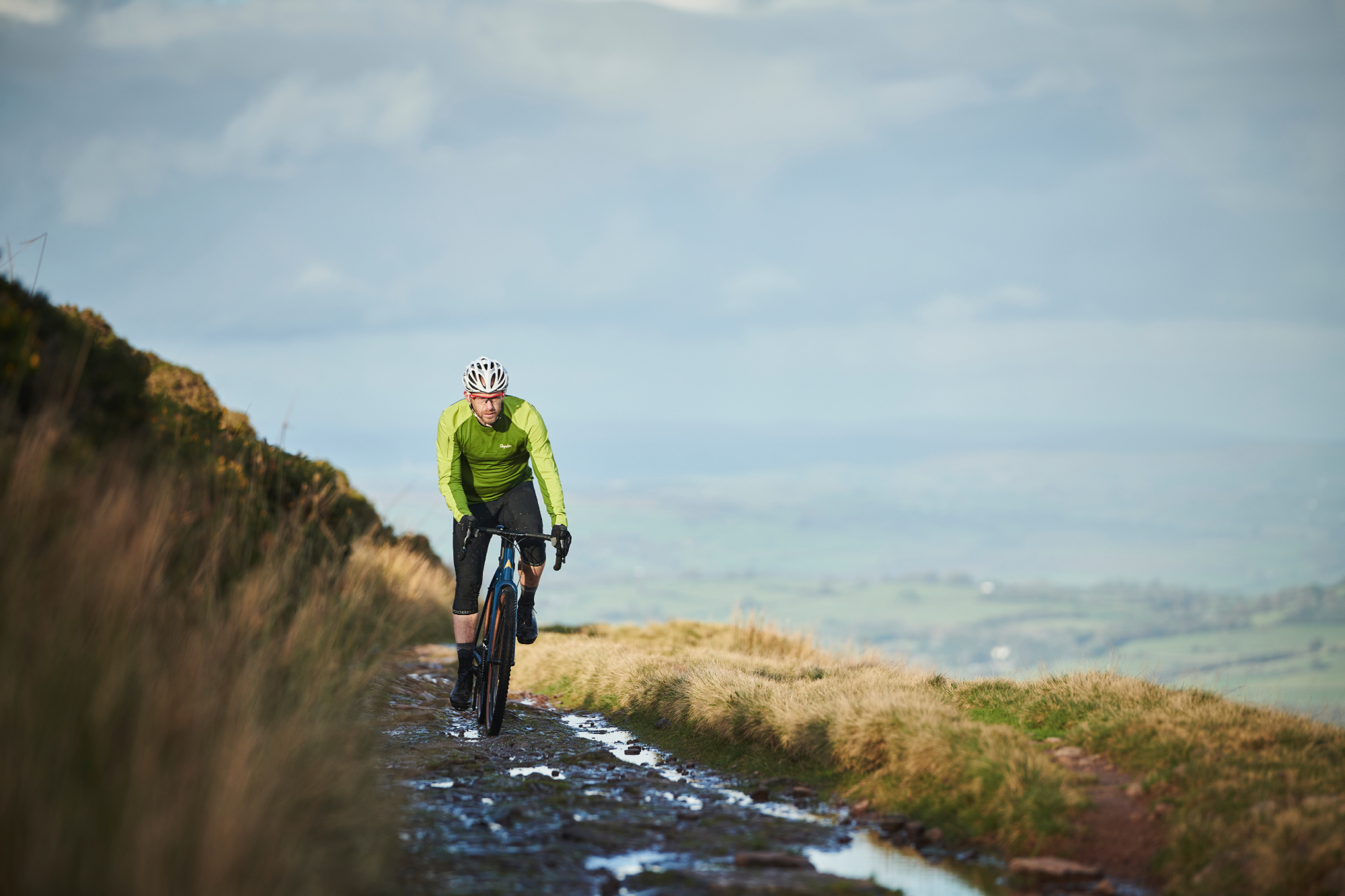
“Cyclo-cross and off-road require a mindset that accepts that this could be a really tough day out. By making the right choices and preparing yourself, you’ll be better placed to focus on the ride,” adds Ellis. “You’ll probably learn a lot from errors – doing things wrong, like getting cold because you haven’t packed enough warm gear, is a lesson that forces you to think ahead and plan more effectively or be more self-sufficient. This process is really beneficial, and riders who have gone through it from an early age tend to be more resilient instinctively.”
9. Complete a workout like no other
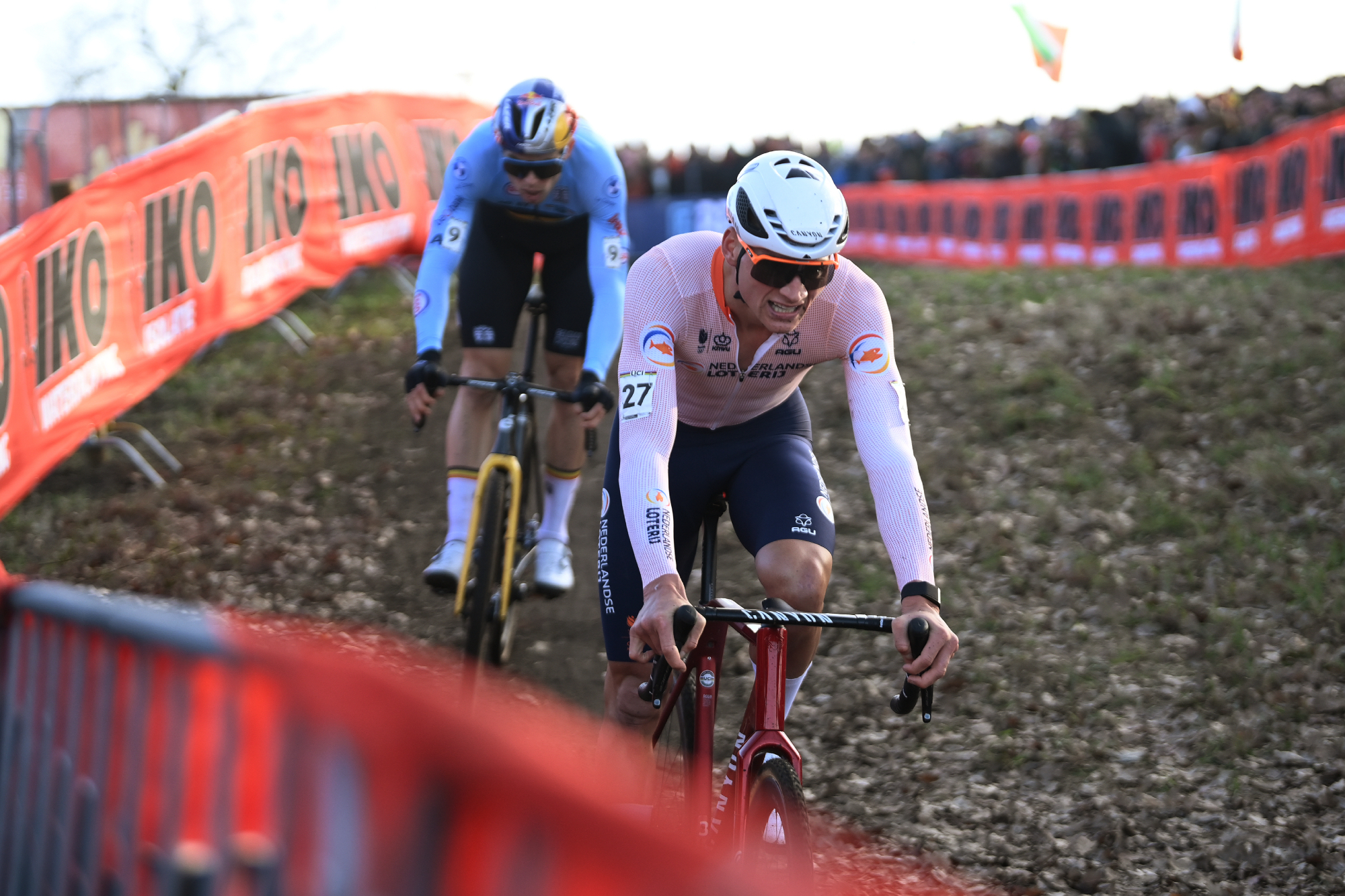
“Riding off-road is a full-body workout,” says Keith Stocker. “It requires strength, flexibility, and muscular endurance to meet the challenges that off-road terrain throws at you. Racing cyclo-cross requires repeated high-intensity efforts and the need to quickly recover from them, time and time again throughout the race. While this can be a shock to the system for those new to CX, the benefits to the road cyclist can be significant.”
“A cross race is, in effect, a high intensity interval session, and the performance gains from having to make repeated efforts at the top end of the severe intensity domain result in real performance development gains in riders across several training metrics. If you look at the performances of the top elite cyclo-cross riders in WorldTour road races, the results are obvious to see.”
10. Have fun!
“A key difference is the fun factor,” says John Hodgson, 65, a former elite-level road and off-road cyclist. “My current routine involves riding mainly off -road at least four times a week, including a club ride on Saturdays. I find off-road riding so much more enjoyable. Make sure you have the right bike for the job with easier gears than you do on the road. Also, take more food and drink than you would for the road, as there are no cafe stops until the end of your ride!”
11. Gain a decisive edge
“In a recent APR [Australian Pursuit Race] ride, I was in a group with others – all very strong road and TT riders and much faster than me,” explains Paul Cooper. “But none of them were cross country riders. When it came to the corners or downhill sections, I was able to maintain the speed while the others had to slow down before and through the corner. On one corner alone, I gained around 300m with no effort at all, and they had to push hard to catch up.”
“After several corners, they were struggling to catch up due to the efforts they were making. By the end of the race, the others were tired, and it was much easier for me to sprint to the win. A big part of this was due to bike-handling skills and confidence with cornering, which I have built up through off-road riding.”
12. What are you waiting for?
“The easiest starting point is your local cyclo-cross league,” says Keith Stocker. “You don’t need lots of fancy kit and new bikes. That old rigid mtb at the back of the shed can be the ideal machine to get started on. There are loads of beginners’ races too, and once you’ve done your first cross race, you’ll be hooked.”
According to Matt Ellis, a key factor is not to be overwhelmed by entering a CX or gravel race. “While the televised events like the Worlds can seem intimidating, the grassroots cyclo-cross scene in this country is vibrant, with many local league races on Saturdays and Sundays. It’s highly accessible, with a welcoming and engaging community.”
Conclusion
Off-road riding not only provides a dose of high intensity over the winter, it also heightens your awareness and makes you more conscious of your surroundings and the terrain beneath your tires. “You start to feel like you are part of the bike instead of just a passenger on it,” adds Paul Cooper, “sensing what the bike is doing in the wet, on the descents and in corners. This means you’re able to trust the bike more, giving you more confidence, which in turn will help you be faster and more efficient on the road.”
CW tries it - ‘Slow down to speed up’
CW’s Sam Gupta learns the art of the dismount from an off-road supremo:
"I recently spent the day being coached by CX and mtb legend Nick Craig, a seven-time national champion. He was tasked with getting me up to speed on some of the most crucial CX skills. Understandably, I spent much of our time together simply mounting and dismounting the bike.
"It’s so incredibly important to nail the basics before you start trying to tackle anything more technical. The key takeaways I learnt when dismounting were to keep my head up, maintain three points of contact with the bike and not to rush. You may assume that you’ll be faster by trying to speed things up, but when you’re performing a manoeuvre with multiple steps, you’ll get a smoother and faster transition by slowing it down and making sure you nail each and every one. If you can find a local field with a steep bank, you already have much of what you need to start training some of the most essential skills."
Elite rider view: ‘Faster, safer, more control - all transferable skills’
Liv Wenzel, 19, from Luxembourg, rides with Hess Cycling Team on the road and Sebmotobikes in cyclo-cross:
“After the road season, I have a rest period of two to three weeks to ensure I recover. Around the start of October, I begin my cyclo-cross training, and soon after, I start racing. Usually, I participate in international as well as national cyclo-cross races in Luxembourg. In spring and summer, I occasionally race XCO races on weekends when I have no road races planned with the team; however, the road is the main focus at this time.
“I think the main difference is the physical and mental effort. A cyclocross race is completed in 50 minutes, whereas road races are often at least four times longer. Moreover, another key di erence is the technical skills needed to finish up front, especially if there is a lot of mud or tricky corners where one can lose a lot of time.
“In cyclo-cross, there is no time to recover during the race, whereas in road races, one can hide in the bunch and recover from time to time. Another difference is that cyclo-cross includes running in certain parts of the course, such as over hurdles, through the mud, and climbing steps. A road cyclist can benefit greatly from cyclo-cross, as it improves overall strength and power in the long run.”







